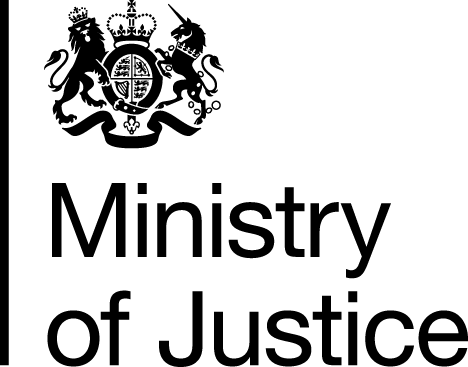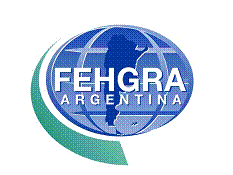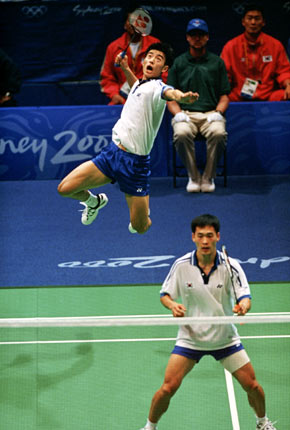CRPDC112 ANNEX II GUIDELINES ON THE PARTICIPATION OF DISABLED
CRPDC112 ANNEX II GUIDELINES ON THE PARTICIPATION OF DISABLED
CRPD/C/11/2
Annex II
Guidelines on the Participation of Disabled Persons Organizations (DPOs) and Civil Society Organizations in the work of the Committee
I. Introduction
The Committee on the rights of Persons with Disabilities (hereinafter the Committee) attaches great value to the participation of disabled persons organizations and civil society organizations, in the different procedures it undertakes, in conformity with its Rules of Procedure’s rules number 30, 52, and its Methods of Work, paragraphs 41 to 53.
In addition to the fundamental principles inspiring the Convention on the Rights of Persons with Disabilities (hereinafter the Convention), the Committee embraces democracy and transparency, in conformity with article 4.3 of the Convention, given particular value to the efforts to contributing with the Committee’s work by organizations representing persons with disabilities, including organizations representing women and children with disabilities.
The Committee understands disabled persons organizations to be those comprised by a majority of persons with disabilities - at least half of its membership -, governed, led and directed by persons with disabilities
The Committee adopts the following guidelines to assist disabled persons organizations and civil society organizations in ensuring timely and appropriate contributions.
II. Participation in the reporting procedure within the framework of the review of the State Party
Written submissions
The Committee welcomes all written submissions with relevant country-specific information that contributes to the review of State Party reports, in accordance with article 35 of the Convention. To ensure that the Committee is provided with such submissions at a relevant stage of the procedure, they should be submitted at one or several of the following times:
before or after the state party submits its report
before the adoption of the list of issues
after the state party has submitted its replies to the list of issues and before the constructive dialogue
before the Committee adopts the list of issues within the framework of its simplified reporting procedure
Timeline
The Committee invites disabled persons organizations and civil society organizations to make their written submissions timely, so as to ensure that they can be properly taken into account by the Committee experts; submissions should therefore be made:
As early as possible and up to three weeks before the opening of the session;
Submissions will be received up to one day before the session, however due to time restraints, these submissions are not guaranteed to be considered by the members of the Committee;
In the case of the adoption of list of issues within the framework of the simplified reporting procedure, submissions need to be received by the Secretariat up to 4 months prior to the beginning of the session in which the list of issues will be adopted.
Disclaimer
7. The submissions are the sole responsibility of the submitting organizations and in no way their reception by the Committee will mean its endorsement or having any position regarding their contents.
Publicity on the Committee’s webpage
8. The submissions will be posted automatically, unless the submitting organization clearly requests its confidentiality
Length
9. The Committee recommends concrete and concise documents, suggesting that their length be limited as follows:
Maximum of 10,700 words in the case of alternative reports to the State Party reports;
Maximum of 5,350 words other submissions.
Structure
10. The Committee strongly recommends that written submissions have the following structure:
Identification of the submitting organization, brief description of its activities at international and/or national level, their mission/vision statesman and what role persons with disabilities play in the organisation, and level of inclusiveness and participation of persons with disabilities in the drafting of the submission.
Executive summary, no longer than one page
make reference to specific articles of the Convention addressed in the submission
propose recommendations
Please note that requirements (a) and (b) in this section are not considered within the length limits recommended in paragraph 9 of these guidelines.
Format and languages
11. The written submissions should be provided in accessible digital or electronic formats, for example, word or text formats; hardcopies are not necessary since the Committee has fully adopted the United Nations greening policy.
The submissions need to be written in one of the Committee’s working languages. The Committee encourages the submission of executive summaries in English. Please note that Conference services does not translate documents submitted by organizations.
Briefings
Applications
12. Disabled persons organizations and civil society organizations applying for a briefing meeting, shall submit a request up to four weeks before the session specifying:
The name of the organization: coalitions are encouraged to make a brief description of their comprising organizations, their mission/vision statement and what role persons with disabilities play in the organisation.
the title of the briefing event;
Brief description of the topics that will be addressed during the country specific briefing.
Indicate the preferred date and time of the briefing event; the only possible times available for briefings are from 9:00 to 10:00 am, and from 13:45 to 14:45 pm during sessional weeks; and previously to the adoption of list of issues during the pre-sessional working group.
Name and function of the speaker(s).
Remote presentations
13. Oral presentations may be made remotely using communications technology, including video conferencing. Due to United Nations financial restraints, organizations must indicate this modality of presentation four weeks prior to the date of the briefing, and the necessary communications technology they will provide.
Accessibility
14. Applicant organizations shall indicate if they will provide translations, captioning, sign language interpretation, Braille documentation, easy-to-read text and/or other accessibility tools
Statements
15. Speakers are requested to submit statements of their interventions to the Secretariat up to one day prior to the briefing event.
Overlapping meetings
16. The Committee Secretariat will allocate time slots after consultation with the Chair of the Committee. Since democracy is a basic principle of the Committee, time will be distributed among all applicant organizations. The priority will be given to those applicant organizations that have also submitted written information. The order of interventions will be: country-based disabled persons’ organizations, national coalitions, international disabled person’s organizations and other civil society organizations.
Venue of briefings
17. All briefings take place in the conference room where the Committee holds its sessions.
III. Thematic briefings
18. Disabled persons organizations and civil society organizations may request briefing time about particular theme(s) on which they may wish to raise the Committee’s attention.
IV. Participation in the drafting of general comments and days of general debate
General comments:
19. Disabled persons organizations and civil society organizations are welcome to submit written submissions to the Committee, with relevant information that contributes to enhance the interpretation of the matter.
20. Disabled persons organizations and civil society organizations are welcome to be present as observers during the session of the Committee in which the draft general comment will be read or adopted.
Days of general debate:
21. Disabled persons organizations and civil society organizations are welcome to make submissions with relevant information that contributes to the analysis of the topic of the day of general debate.
22. Oral presentations: Speakers representing disabled persons organizations and civil society organizations, may request up to two days prior to the day of general debate, speaking time for oral presentations. Their application shall include: name of the organizations they represent, the mission/vision statesman and what role persons with disabilities play in the organization; name and function of the speaker. Speakers are requested to submit a statement of their intervention.
V. Intervention in the procedures concerning communications
23. The Committee welcomes the intervention of disabled persons organizations and civil society organizations in the procedures concerning communications. In particular, the interventions may include the following:
Advisory role, such as training to alleged victims and/or possible authors of communications, on the contents of the Optional Protocol and the criteria that must be met, in particular, the exhaustion of domestic remedies, in order to consider a communication admissible for the Committee.
Representation of the alleged victim(s) while submitting communications on their behalf, if the latter so decides.
Third party interventions, pursuant to Rule 72.3 of the Committee’s Rules of Procedure
Collaboration with the dissemination of the Committee’s jurisprudence, and to give Follow-up by providing the Committee with evidence-based reports on the implementation of the Committee’s views and recommendations.
VI. Inquiries
Submissions
24. Disabled persons organizations and civil society organizations may make submissions to the Committee, with relevant information to be considered under article 6.1 of the Optional Protocol, requesting an inquiry. These submissions should include:
Identification of the submitting organization, and in the case of organizations of persons with disabilities, their mission/vision statement and what role persons with disabilities play in the organisation.
substantiation on grave and systematic violations of rights set forth in the Convention by a State Party to the Optional Protocol
credible and reliable information on which the submission is grounded
Recommendations to the committee
Other relevant sources
25. Disabled persons organizations, other civil society organizations or the requesting entity may suggest other references for additional information regarding the matter of inquiry that may contribute to the procedure, such as universities, human rights institutions, and other local organizations such as women’s and/or children’s rights organizations, in conformity with Rule 83.3 of the Rules of Procedure.
Collaboration during visit and follow-up
26. If the Committee conducts a visit, disabled persons organizations and civil society organizations are encouraged to collaborate with the proceedings.
27. The Committee may invite disabled persons organizations and civil society organizations other than the inquiry requesting organization, to provide relevant information and collaborate with the Committee during a visit within the inquiry procedure, respecting the confidentiality of the procedure.
28. Pursuant to Rule 90.1 of the Committee’s Rules of Procedure, disabled persons organizations and civil society organizations are encouraged to provide follow-up information to the committee.
VII. Capacity building activities pursuant to article 37 of the Convention
29. Pursuant to article 37 of the Convention, the Committee may cooperate with the States Parties by undertaking activities that may contribute to the better understanding of the provisions in the Convention and the means to accelerate their implementation. With this purpose, disabled persons organizations and civil society organizations may draw the Committee’s attention to specific areas regarding which a State Party may require such support from the Committee.
VIII. Early warning and urgent action procedures
30. Disabled persons organizations and civil society organizations may request the activation of these procedures in accordance with paragraphs 26 to 29 of the Committee’s methods of work.
IX. Guarantees and protection to human rights defenders participating in the work of the Committee
31. The Committee, in line with General Assembly Resolution A/RES/68/268 on the strengthening and enhancing the effective functioning of the human rights treaty body system, strongly condemns all acts of intimidation and reprisals towards individuals and organizations for their contribution to the work of the Committee. The Committee will appoint, among its members, a focal point on reprisals who will follow-up and provide advice on situations concerning these cases.
Tags: annex ii, annex, participation, disabled, guidelines, crpdc112
- FINANCIJSKA POMOC ZA ORGANIZACIJU TURNIRA NA STADIONU RASODI 2007
- PROCEDURA JURIDICA SI CAPCANELE LIMBAJULUI ECONOMIC – SEMINARUL 4
- UNEPCBDSBSTTA91ADD1 PAGE 0 CBD CONVENTION ON BIOLOGICAL DIVERSITY DISTR
- DOCUMENT DE SOUTIEN RAPPORT TYPE VERSION 2019 COORDINATION ET
- MÉMOIRES DUN VOYAGEUR CHINOIS DANS LEMPIRE DANNAM TSAÏTINLANG
- W12060017IV WIJZIGING VAN DE WET WERK EN BIJSTAND IN
- TABLE OF CONTENT VOLUME I CURRENT ISSUES IN THE
- CLÁUSULAS EVENTUALES 1 GARANTÍAS LA PERSONA FÍSICA QUE FIRMA
- IN 1986 A GROUP OF FRIENDS WHO USED TO
- E L DIA DE LOS MUERTOS INTRODUCCIÓN ¿SABES QUÉ
- FUNDACIÓ VALL PALOU “ENDEGAT UN CAMÍ QUE VOLEM LLARG
- DARKO BERNIK OCENJEVANJE TVEGANJA PRED SNEŽNIMI PLAZOVI OCENJEVANJE NEVARNOSTI
- KILGORE SAMARITAN COUNSELING CENTER ANNUAL REPORT FOR 2017 REVIEW
- Cels Safety & Health Manual sop no Ipsop023
- CIÊNCIAS FÍSICOQUÍMICAS ESCOLA EB 23 SANTA MARINHA NOME
- CCA HIGH PERFORMANCE PHYSICAL TRAINING PROGRAM FOR CURLING DEVELOPED
- DEFAULT SUPERANNUATION FUNDS IN MODERN AWARDS PRODUCTIVITY COMMISSION DRAFT
- 5 MANUAL DE INTRODUCCION A LA TERMINOLOGIA MEDICA ¿QUE
- TÉZY NA ŠTÁTNE SKÚŠKY Z PEDAGOGIKY PRE UČITEĽOV
- COMPENDIO DE INICIATIVAS DE TRANSICION COMO CONVERTIRSE EN UNA
- INVITACIÓN EL CONAMA 2012 Y UNIÓN PROFESIONAL SE COMPLACEN
- TC GAZİEMİR BELEDİYE BAŞKANLIĞI MECLİS KARARI KARAR NO 122021
- ALICE SPRINGS CRICKET ASSOCIATION INC RULES PART A ADMINISTRATION
- PARLAMENTO EUROPEO 2009 – 2014 DOCUMENTO LEGISLATIVO CONSOLIDADO 1052012
- RJUKAN IL SVØMMEGRUPPE VIL MED DETTE INVITERE DERE TIL
- COMUNICADO ESPECIAL SOBRE EL PROBLEMA MUNDIAL DE LAS DROGAS
- USING THE INTERNET AS A COLLEGE SEARCH TOOL HERE’S
- 7 BOKFÖRINGSNÄMNDEN HANDELS OCH INDUSTRIMINISTERIET 21112006 ALLMÄN ANVISNING OM
- HOLA AMIGOS SALUDOS A TODOS TENGO UN PEQUEÑO INCONVENIENTE
- ELS TRES FILLS DEL REI PERDÓ (+ GENEROSITAT PENSAR
THIS DOCUMENTS PROVIDES GUIDANCE TO THOSE SERVICERS THAT WILL
LOUISIANA SICC PUBLIC COMMENT PROCEDURE PUBLIC COMMENT FORMS ARE
 CUM DISCIPULI CUM MAGISTRO LOQUUNTUR VOICI QUELQUES DIALOGUES QU’ONT
CUM DISCIPULI CUM MAGISTRO LOQUUNTUR VOICI QUELQUES DIALOGUES QU’ONTDIANA BICKLEY QUALIFICATIONS 1999 PHD GOLDSMITHS COLLEGE UNIVERSITY
JUEVES 7 DE ENERO DE 2021 DIARIO OFICIAL 80
BUENOS DÍAS SEÑORES Y SEÑORAS DIRECTORES Y DIRECTORAS GENERALES
INFORME DE PROGRESO EN LA EJECUCIÓN DEL PROYECTO (IPEP)
 INTRODUCTION TO PHP AND MYSQL SELF TEST 4
INTRODUCTION TO PHP AND MYSQL SELF TEST 4ELEKTRONIK KAYIT (EKAYIT) İŞLEMINIZI YAPARKEN AŞAĞIDAKI HUSUSLARA DIKKAT EDINIZ!
 REDUCING REOFFENDING POLICY UNIT MINISTRY OF JUSTICE 102 PETTY
REDUCING REOFFENDING POLICY UNIT MINISTRY OF JUSTICE 102 PETTYRULE 500 COLORADO BOARD OF MEDICAL EXAMINERS RULES DEFINING
INFORMATION SHARING AGREEMENT TITLE REFERENCE INFORMATION SHARING AGREEMENT [TITLE]
INTESTINAL T CELLS OF DICENTRARCHUS LABRAX (L) GENE EXPRESSION
 AUTORA MSC JENSY TANDA DÍAZ COAUTOR DRC MANUEL MARRERO
AUTORA MSC JENSY TANDA DÍAZ COAUTOR DRC MANUEL MARREROANEXO I ACTIVIDADES DENTRO DEL AMBITO DE DECLARACION RESPONSABLE
 FEHGRA DEPARTAMENTO DE CAPACITACIÓN Y FORMACIÓN PROFESIONAL PROGRAMA DE
FEHGRA DEPARTAMENTO DE CAPACITACIÓN Y FORMACIÓN PROFESIONAL PROGRAMA DE NOM PRÉNOM MON DOSSIER DE CFG COLLÈGE ……… VILLE
NOM PRÉNOM MON DOSSIER DE CFG COLLÈGE ……… VILLE LES QUALITATS FÍSIQUES BÀSIQUES EL SEU ENTRENAMENT I LA
LES QUALITATS FÍSIQUES BÀSIQUES EL SEU ENTRENAMENT I LA MODUL 5 EXTERNE UNTERSTÜTZUNG UND KOOPERATION DIESES FÜNFTE MODUL
MODUL 5 EXTERNE UNTERSTÜTZUNG UND KOOPERATION DIESES FÜNFTE MODUL SEZAMŲ SAUSAINIUKAI RECEPTAS IŠ BEATOS NICHOLSON „KEPINIŲ KNYGOS“ REIKĖS
SEZAMŲ SAUSAINIUKAI RECEPTAS IŠ BEATOS NICHOLSON „KEPINIŲ KNYGOS“ REIKĖS